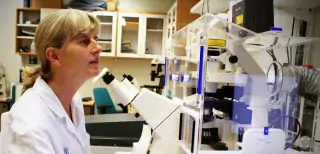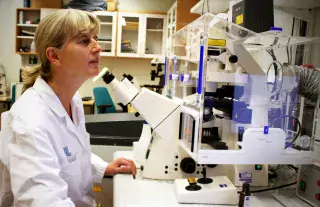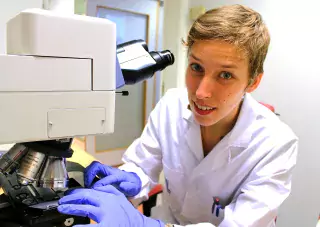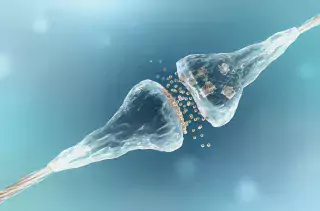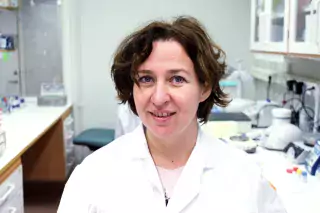News archive
On this page you can search for older news. Choose a topic, type of news or enter your own keyword to filter out news.
View compact

An infant’s scores on the so-called Apgar scale can predict the risk of a later diagnosis of cerebral palsy (CP) or epilepsy. The risk rises with decreasing Apgar score, but even slightly lowered scores can be linked to a higher risk of these diagnoses, according to an extensive observational study by researchers at Karolinska Institutet published in The BMJ.
News

A new study from Karolinska Institutet shows that the same mechanisms behind the beneficial effects of exercise training on the brain also help to counteract fat and to strengthen the immune system. The results, which are published in the journal Cell Metabolism, can ultimately give rise to new obesity and diabetes drugs.
News
Researchers Petter Brodin and Carl Sellgren Majkowitz at Karolinska Institutet have been accepted into the Wallenberg Clinical Fellows research programme, meaning a three-year appropriation financed by the Marianne and Marcus Wallenberg Foundation.
News
In a study published in Cell Chemical Biology this week, researchers from MTC (Michael Landreh, David Lane, Sonia Lain, Marcus Ladds et al), KTH, Uppsala University, and the University of Oxford, used a new strategy to find out how anticancer drugs bind to the membrane protein dehydroorotate dehydrogenase (DHODH), a new cancer target.
News
A study by researchers at Karolinska Institutet and the University of Copenhagen published in Nature provides new and important knowledge about how the brain controls locomotion. In research on mice, scientists have discovered that specific start cells in various locations in the brainstem control whether the mouse walks or runs. This research may lead to new treatments for diseases and injuries that adversely affect locomotion.
News
Jorge Ruas, Associate Professor at the Department of Physiology and Pharmacology at Karolinska Institutet, is the recipient of The Leif C. Groop award for outstanding diabetes research for his work on muscle and exercise physiology and critical signalling pathways in skeletal muscle, liver and fat tissue.
News

The failure of drugs such as SSRIs, used to treat depression, can be a result of genetic variations in patients. Variations within the gene that encodes the CYP2C19 enzyme results in extreme differences in the levels of escitalopram achieved in patients, according to a new study published in The American Journal of Psychiatry. Prescribing the dose of escitalopram based on a patient’s specific genetic constitution would greatly improve therapeutic outcomes.
News

